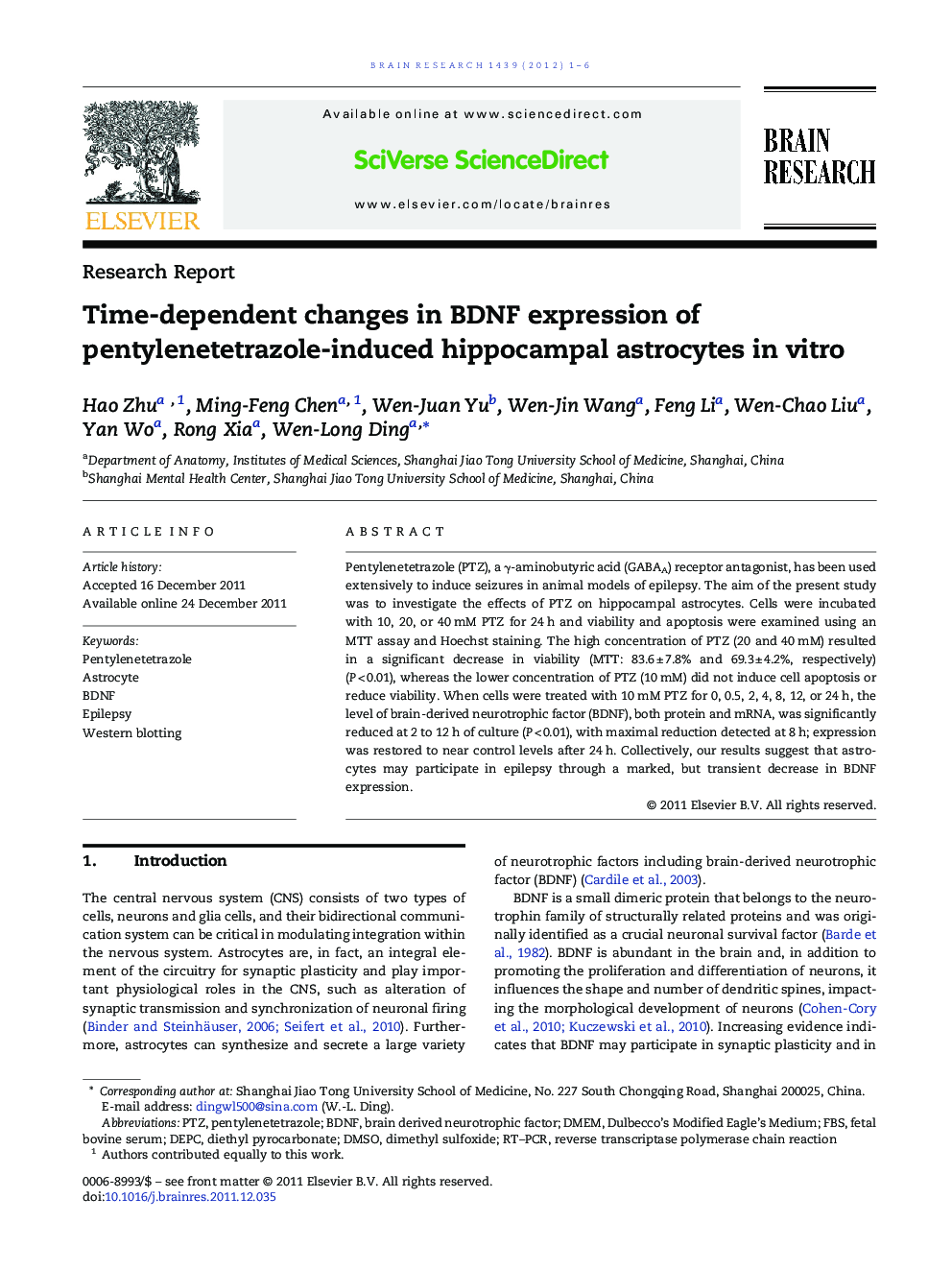| Article ID | Journal | Published Year | Pages | File Type |
|---|---|---|---|---|
| 4325440 | Brain Research | 2012 | 6 Pages |
Pentylenetetrazole (PTZ), a γ-aminobutyric acid (GABAA) receptor antagonist, has been used extensively to induce seizures in animal models of epilepsy. The aim of the present study was to investigate the effects of PTZ on hippocampal astrocytes. Cells were incubated with 10, 20, or 40 mM PTZ for 24 h and viability and apoptosis were examined using an MTT assay and Hoechst staining. The high concentration of PTZ (20 and 40 mM) resulted in a significant decrease in viability (MTT: 83.6 ± 7.8% and 69.3 ± 4.2%, respectively) (P < 0.01), whereas the lower concentration of PTZ (10 mM) did not induce cell apoptosis or reduce viability. When cells were treated with 10 mM PTZ for 0, 0.5, 2, 4, 8, 12, or 24 h, the level of brain-derived neurotrophic factor (BDNF), both protein and mRNA, was significantly reduced at 2 to 12 h of culture (P < 0.01), with maximal reduction detected at 8 h; expression was restored to near control levels after 24 h. Collectively, our results suggest that astrocytes may participate in epilepsy through a marked, but transient decrease in BDNF expression.
► PTZ treatment reduces astrocyte viability in a dose-dependent manner. ► PTZ induces BDNF expression in astrocytes in a time-dependent manner. ► PTZ induces time-dependent changes in the expression of BDNF mRNA in astrocytes.
